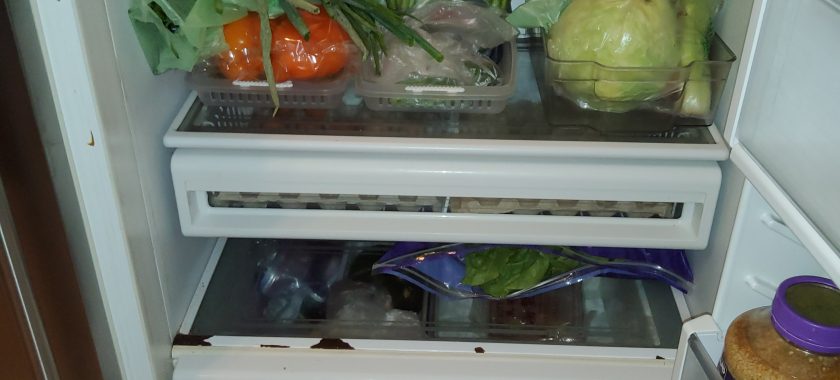A refrigerator is expected to keep your food fresh, your drinks cold, and your kitchen smelling clean. But when your fridge begins to emit unpleasant, persistent odors even after you’ve cleaned the shelves and removed old food, it signals a deeper issue. Many homeowners are surprised to learn that bad smells often originate not inside the food compartment, but from hidden components such as the drip tray or the drain system.
If you’ve noticed foul odors that return shortly after cleaning, understanding the possible causes can help you take the right steps before the problem becomes more serious. Two of the most common culprits behind stubborn fridge odors are mold growth in the drip tray and a clogged or blocked drain system.
Why Does the Fridge Still Smell After Cleaning?
You may have scrubbed the shelves, washed storage bins, and discarded anything expired, yet the odor persists. This usually indicates that the source of the smell is external to the main compartment. Refrigerators manage moisture and condensation through a system of drains and a drip tray located near the bottom of the appliance. Over time, these areas can accumulate water, residue, and food particles, creating ideal conditions for bacteria and mold growth.
1. Mold or Bacteria in the Drip Tray
Every refrigerator has a drip tray (also known as a drain pan) that collects water produced during the defrosting and cooling cycle. Normally, this water evaporates naturally due to heat from the compressor. However, if the tray fills with debris, dirt, or stagnant water, it becomes a breeding ground for mold and mildew.
Because the drip tray is located underneath or behind the fridge, it isn’t part of a normal cleaning routine—and many homeowners never check it at all. Mold growth here can create strong odors that eventually spread throughout the kitchen, even if the fridge interior is spotless.
Signs that the drip tray may be the source:
- The odor intensifies near the bottom of the fridge.
- You notice a musty or sour smell after the fridge runs.
- Cleaning the interior provides no improvement.
2. Clogged or Blocked Drain System
Modern refrigerators use a small drain hole to channel condensation and defrost water into the drip tray. Over time, this drain can become clogged with food particles, grease, or mineral buildup. When this happens, water backs up into the fridge or freezer, allowing bacteria to thrive.
A blocked drain line not only creates odors but can also cause water pooling inside the fridge, frosting issues in the freezer, and even reduced cooling performance. If the drain becomes completely obstructed, mold can spread quickly through the moisture trapped inside the system.
Signs of a clogged drain system include:
- Water pooling at the bottom of the fridge.
- Ice forming in unusual areas of the freezer.
- A damp, sour, or rotten smell that returns after cleaning.
Why You Should Not Ignore Odors in a Refrigerator
Persistent odors aren’t just unpleasant—they can indicate deeper problems. Mold growth, for example, can circulate spores inside your home. Bacteria thrive in damp environments, and a malfunctioning drain system can put extra strain on your refrigerator’s cooling components. Over time, the issue may escalate into a more costly repair if left unaddressed.
Ignoring odors caused by a clogged drain or moldy drip tray can lead to:
- Increased energy consumption
- Reduced cooling efficiency
- Damage to insulation and internal components
- Risk of food contamination
- Compressor strain and premature failure
Can You Fix It Yourself?
Some homeowners attempt to clean the drip tray or unclog the drain system themselves. While it may seem simple, refrigerators vary by model, and accessing these components often requires tools and knowledge of how the system is assembled. Removing the drip tray incorrectly can cause damage or even break internal parts.
Similarly, trying to clear a drain line with the wrong tools can puncture or crack it, leading to leaks that are far more complicated and expensive to repair.
If you are not experienced with refrigerator maintenance, it is safer and more efficient to call a professional technician.
Professional Repair Ensures Long-Lasting Results
A certified technician will:
- Remove and thoroughly disinfect the drip tray
- Unclog and flush the entire drain system
- Inspect water flow and condensation pathways
- Check for mold growth in hidden areas
- Ensure all components are functioning properly
- Prevent future buildup by restoring correct drainage
With professional repair, the root cause is eliminated rather than masked. Your fridge will operate more efficiently, smell clean again, and maintain a healthier environment for your food.
If your refrigerator is producing unpleasant odors despite your best cleaning efforts, it’s time to address the real problem. Mold, clogged drains, and hidden moisture issues should never be ignored. The longer you wait, the more damage your fridge may sustain.
For fast, professional, and reliable service, contact Chula Vista Appliance Repair Company today. Their experienced technicians will diagnose the issue, eliminate odors at the source, and restore your refrigerator to perfect working condition.
Contact us
(619) 880-5508


